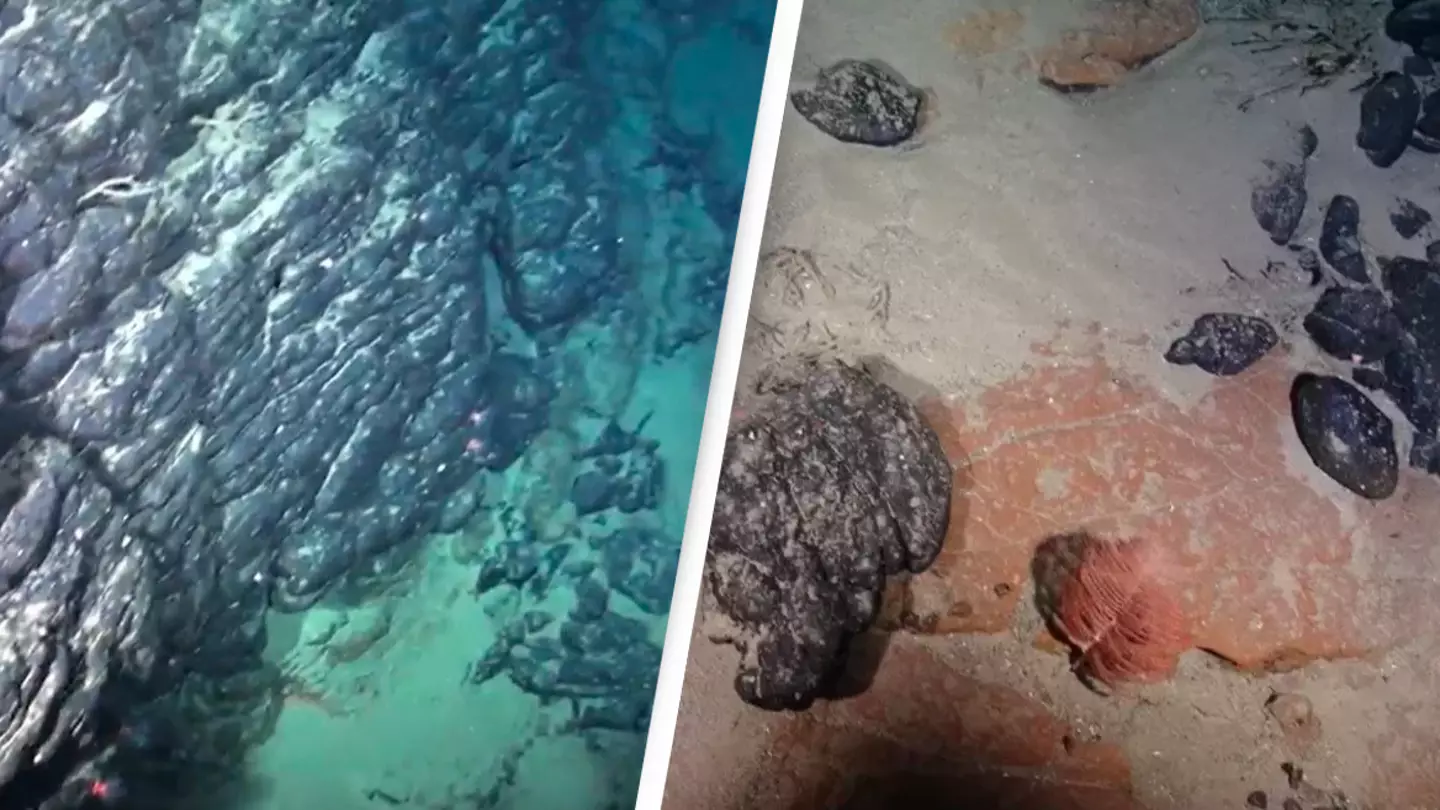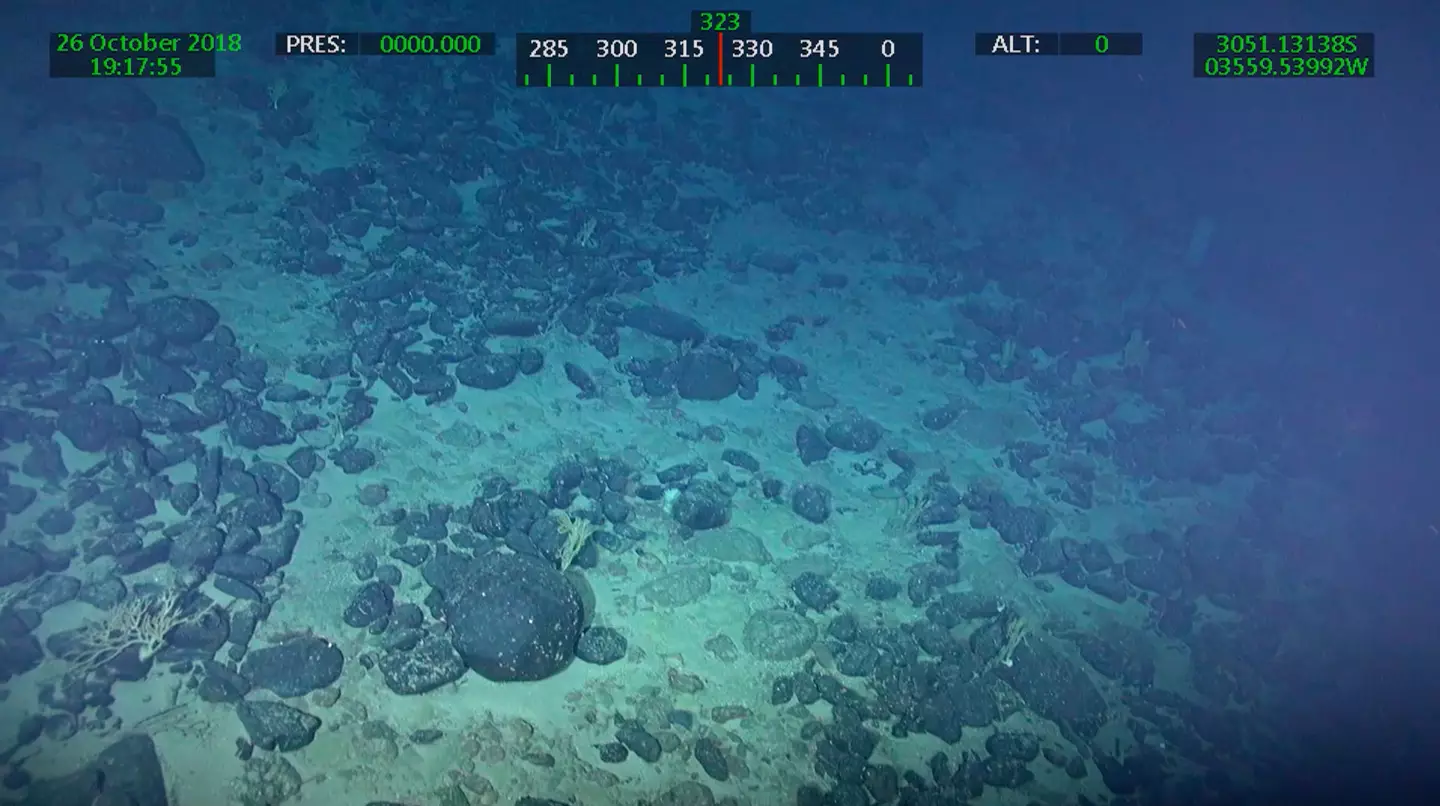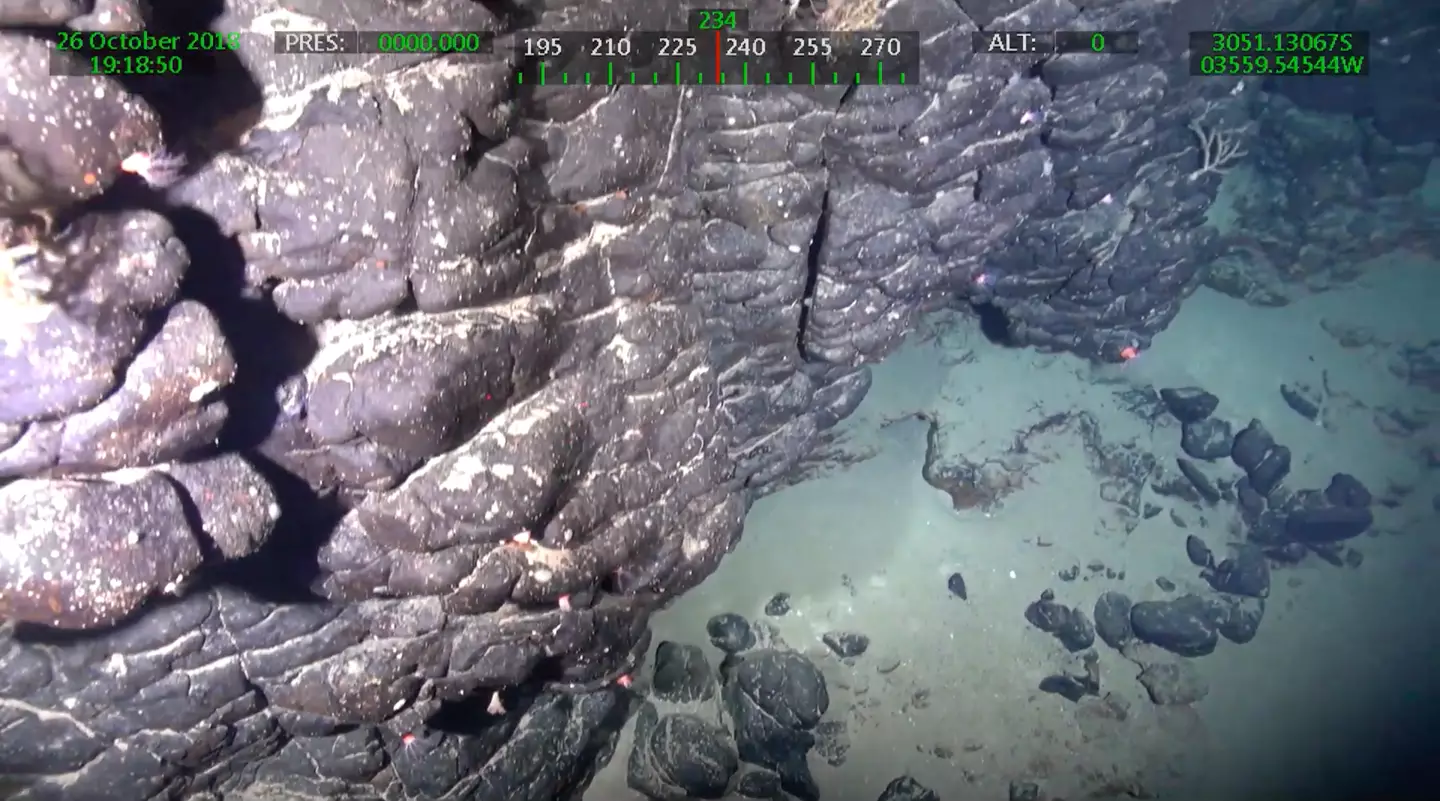
A sunken island off the coast of Brazil has sparked controversy over who can claim it.
Scientists found the sea mount called the Rio Grande Rise some 750 miles off the coast of Brazil.
The 'sunken island' is a sea mount which rises to a higher point than the surrounding sea bed, and researchers made a discovery about it which has sparked attention.
Advert
This is because they found that the sea mount is likely to have once risen above the surface and been a luscious tropical island around the size of Iceland.
In 2018, scientists spotted that there were deposits of red clay some 650 metres below the surface, which is not the kind of mineral that you would typically expect to find there.
Marine geologist Bramley Murton told Eos: "You just don't find red clay on the seabed."
Later research found that the island's origins go back some 80 million years to the Cretaceous Period, when dinosaurs still roamed the Earth.
It was created by a burst of volcanic activity, before drifting westwards and sinking back beneath the ocean, 40 million years later a further eruption led to the deposits which have been found.

These include rich deposits of rare earth minerals such as cobalt, lithium, nickel, and tellurium.
Between them, these elements have a huge variety of industrial applications.
Most notably these include in rechargeable batteries like the ones in computers, electric vehicles, and smart phones.
In other words, it might not be a literal goldmine but it certainly is a figurative one.
This has immediately questions over who has control and ownership over the natural resources at the site.
Brazil has staked a claim, but the problem is that it lies outside of the jurisdiction for it to claim in international waters.
However, there was a way for Brazil to claim the resources, this was to make the case that the area shares geological similarities with the country so is part of Brazil's 'coastal shelf'.

Luigi Jovane, a professor at the oceanographic institute at the University of São Paulo, said: "Our research and analysis enabled us to determine that it was indeed an island, and what's now under discussion is whether the area can be included in Brazil's legally recognized continental shelf."
Of course, there are also questions about the impact that extracting the minerals would have.
Jovane continued: "To know whether resources can be viably extracted from the sea floor, we need to analyze the sustainability and impacts of this extraction. The ecosystem services provided by the ocean there haven't been studied in detail, for example.
"When you interfere with an area, you have to know how this will affect animals, fungi and corals, and understand the impact you'll have on the cumulative processes involved."
Topics: News, World News, Money
